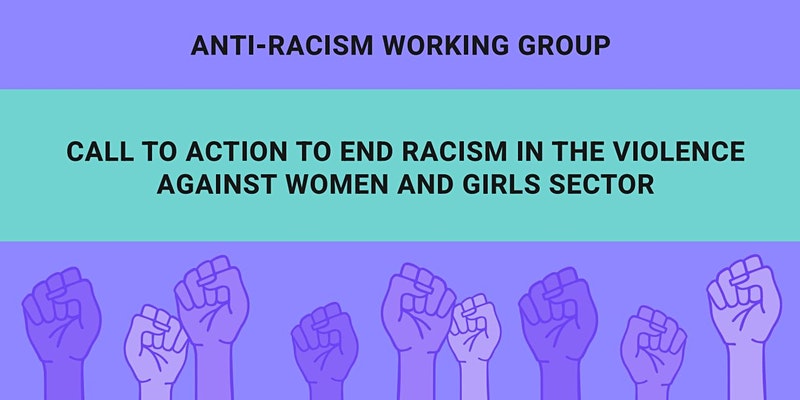 19 Mar
19 Mar
A lot has happened in the past year, in our world, in our lives, in our movement. Through it all there has been a piece of work led by Black, minoritised, and white women focused on how the violence against women and girl’s movement can grow by centring anti-racist principles and actioning anti-racist practices.
The VAWG anti-racism charter is a roadmap for how we eradicate racism in all parts of our movement; from service delivery and campaigns, through to governance and management. It follows the powerful call to action published late last year by the same group and is founded on the understanding that racism is a form of violence against women.
This is an uncontroversial truth for Black and minoritised women, as uncontroversial really as it is for white women to name the violence against us as cause and consequence of gender inequality. However as white women we are rarely used to thinking in this way. Put simply, we haven’t had to.
Our whiteness has protected us from having to think of ourselves as racialised. We’re never reduced to an acronym. We’re never qualified by our colour. We’re just, well, women.
Unused to thinking about ourselves as raced, naming and beginning to recognise our whiteness is incredibly uncomfortable. This discomfort increases to almost intolerable levels when we start to truly recognise what that whiteness means for our inescapable position in the systems and structures that oppress our Black and minoritised sisters.
White women’s supremacy.
White women’s fragility.
White women’s complicity.
For women such as ourselves who have worked for decades to end violence for all women, our immediate impulse is often one of rejection, resistance, defence against acknowledging our role in these structures. “White Feminism” “White tears” “White privilege”, it’s wholly unfamiliar to have our race named in this way and used to discount what we do, what we say. To be minimised, reduced, silenced. It feels unfair.
But our resistance runs deeper than that.
We know that truly addressing our complicity will mean more than some passing discomfort. It will involve an active, chosen, redistribution of power and resources. We will have to give up some of what we’ve fought for; as organisations, as individuals. And in a context where we don’t feel we have enough to begin with, we don’t want to lose what we’ve gained.
The rush to defend, to divert, and deny, to dismiss is understandable.
It is also unhelpful.
We need to move beyond it.
We the white women on EVAW’s board are calling on our white sisters in the violence against women and girls movement to join us in committing to the anti-racism charter as it is written. To trust and accept our Black and minoritised sisters in naming the problem as they live it. To do the work ourselves to reflect on why that makes us uncomfortable.
Our work shows us the power of words. The power of bringing something into language. The way we name a problem frames a problem. And the way we frame it shows us where to look for a solution. Racism in the violence against women and girls movement is not the problem of Black and minoritized women. It affects them, but it is not their problem. It is our problem as white women. We cannot and will not end violence against all women until we do something about it. We’re being offered an opportunity here. We need to take the leap and take it up.
Fiona Vera-Gray, Liz Kelly, Sara Kirkpatrick, Marianna Tortell
12th March 2021
Recommended ARTICLES
 19 Mar
19 Mar
 05 Mar
05 Mar
 27 Feb
27 Feb

